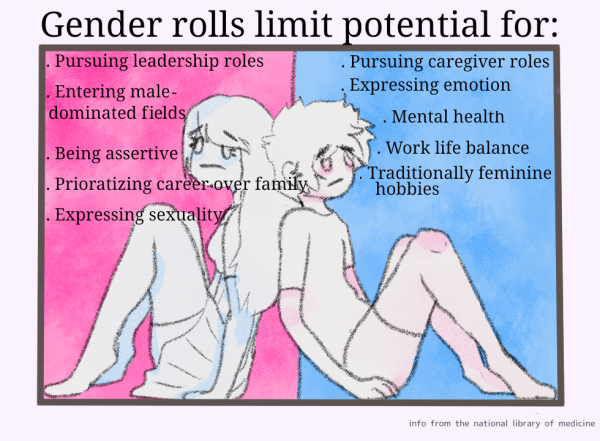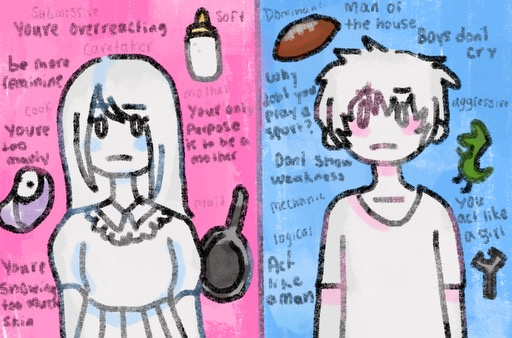Around the world, gender stereotypes emerge in different countries, ethnicities and genders. These repressing notions continue to hold back activities and roles people deem acceptable because of what society burdens onto them due to stereotypes. Generally, males and females fall victim to stereotypes across the seven continents, causing the world to continue to follow roles that do not serve as beneficial to society. By challenging gender stereotypes, people can unlock their full potential in society.
Men and women face stereotypes amongst themselves equally, however, female stereotypes degrade and humiliate their human rights altogether. In the U.S., women endure objectifying tropes, causing them to face judgment or feel singled out, specifically in their place of work. Wrongful gender stereotyping becomes a frequent cause of discrimination against women. When the belief that women should receive support from their husbands rises, work misconceptions come about such as equal pay, creating the inequality seen in the workforce towards women. By enabling gender conceptions in the workforce, the tropes pushed by stereotypes prevent people from growing in their careers, causing social setbacks. Women also tend to receive stereotypical roles from birth, including the expectation of only liking the colors pink and red or playing with dolls, representing the idea of girls emerging as emotional. After experiencing belittling treatment, girls will typically grow up to carry on traceable insecurities.

“People push anything that means to be a man, and or not being able to show that we feel emotions. In society, I don’t feel like I can give my opinion when it comes to a topic of gender because ‘I’m a man and don’t know what I’m talking about.’ Some of the stereotypes are bad, like how women are objects. But there are some good ones like men who are stronger than women biologically,” magnet sophomore Guilherme Oliveira dos Santos said.
While traditional roles and stereotypes served a purpose in the daily lives of the past, stereotyping appeared as a by-product of a normal routine to keep order — modern-day roles simply use traditional roles as a hindrance. People will even try to use the way that animals contribute to nature as an excuse for how the roles of men and women remain in the world, affecting the actions of society. In the modern day, stereotypes serve as a restraint to societal development, resulting in inequalities such as the difference in pay at work. The conscious or subconscious belief that men constitute exemplary leaders or fit for management roles as opposed to women reinforces sexual discrimination in the place of business. This belief holds back the evolution in the workplace as well as the rest of the world.
“People say that as a woman, I would have to be more obedient to the opposite gender and that if I become a wife, I’ll have to clean and cook consistently. I wanted to be a boxer when I was younger, but when I told my parents they told me that women were not supposed to be fighting and engaging in the physical area. I believe stereotypes are bad because your gender should not dictate what you do with your life,” sophomore Amienata Jaiteh said.
In essence, men and women continue to attain wrongful viewpoints set onto them, causing influenced behaviors and expectations in society. Even though progress continues toward a better environment, traditional roles persist limiting personal and professional growth. Slowly annihilating gender roles will benefit society as a whole, forging a way to an equal world for everyone.













